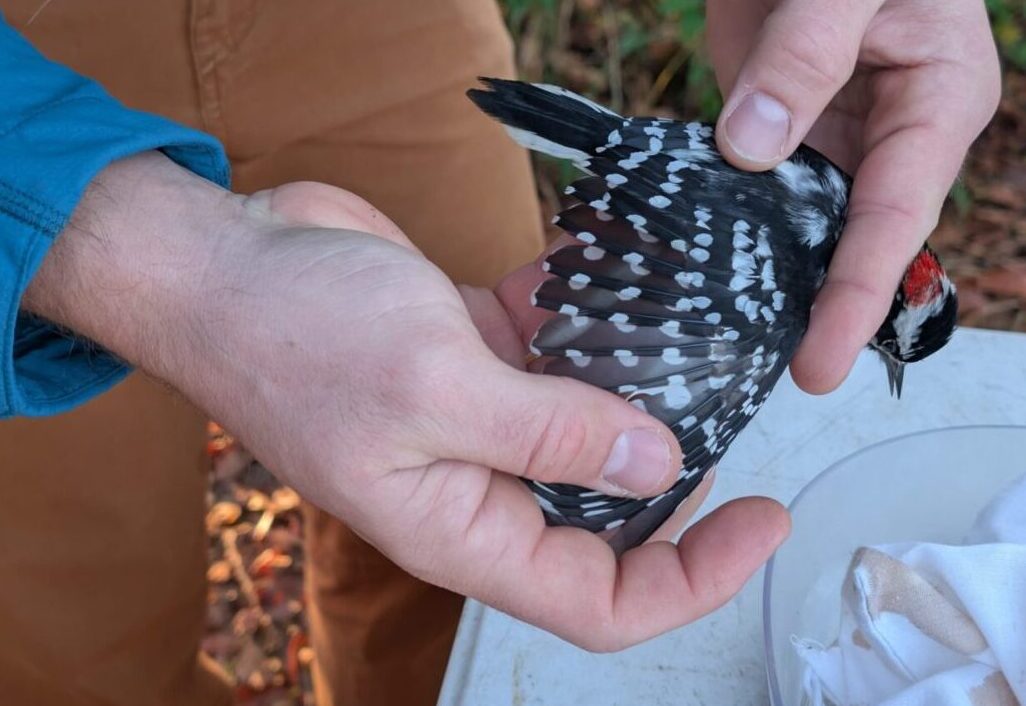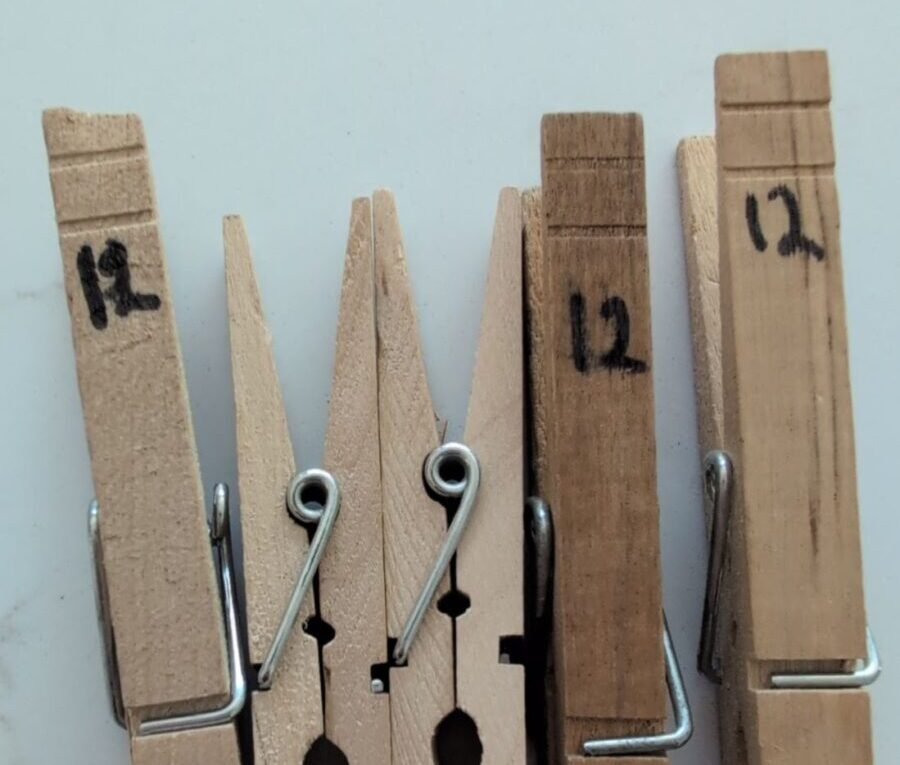October 13 2024
*Author’s Note: The title of this blog is a pick-up from the Rolex® brand tagline.
A brisk October morning with nothing but a new moon left little light for me to find my way through the setup. Walking alone, I almost took the wrong path, my coffee not quiet yet hitting the switch in my brain. I practically had to guess which path to take. I remembered all the right gear, but a headlamp this early in the morning would have gone a long way.
Certain birds had already come a long way. The Cornell Lab of Ornithology alerted me via text that the night before was to be thick in migrating birds. A particular type that we were hopeful to see come into the station: the uber-diminutive, yet cheeky, kinglet. Whether the fiery Golden-crowned or the feisty Ruby-crowned, (pictured above) we didn’t have a preference. But their arrival is a certain indicator of chilly weather and the nod that tee shirts are out and flannel is in.
Our set up was slightly hindered right from the get go, (beyond the lack of light) because certain individuals absconded with some of our appurtenance. Some things we stash, too cumbersome to carry in and carry out every banding session. Apparently it’s fair game for some dunderheads. While not the first time it’s happened, we hope it’s the last. Smile, you’re going to be watched next time.
A dapper White-throated sparrow was one of the first birds to drop by fresh from her journey from the North woods. Sure enough, the migratory birds definitely arrived. The usual Song sparrows were around along with the Tufted titmice and Northern cardinals which made up most of our motley crew of birds for the morning. Plus a Downy woodpecker, even a Common yellowthroat. Later another bird from the North, a Slate-colored junco.

Then, the show was stolen by the crown we had hoped for. A Ruby-crowned kinglet. So young, its fiery crown had yet to come in. This bird is so small, it makes a Common yellowthroat seem chunky.
Apparently, the theme for theft continued right on through the late morning. When I got home and emptied my pockets, a handful of number 12 clothespins fell out. We use these clips to keep track of which birds come from which area. Only, I didn’t steal on purpose! I will return ASAP.

And that’s the final coronation for WBRG songbird banding for the 2024 season. See you next April!
Next, the procession continues with the crown jewels of the forest: owls. WBRG studies the migration and winter ecology of eastern North America’s smallest owl, the Northern Saw-whet Owl. WBRG staff capture and band Saw-whet Owls at multiple sites during the fall migration, and participate in a continent-wide network of owl researchers studying large-scale Saw-whet biology.
The Wild Bird Research Group, Inc. is a 501 (c)(3) non-profit organization whose mission is to conduct and support research and science-based conservation initiatives that benefit birds and their habitats in the Americas. WBRG and its associates conduct various research, monitoring and education programs in the Mid-Atlantic U.S. and Central America, tropical bird banding internships for university students, owl migration and winter ecology research, and bird-focused environmental interpretive programs. Click on the logo below to learn more.


No responses yet